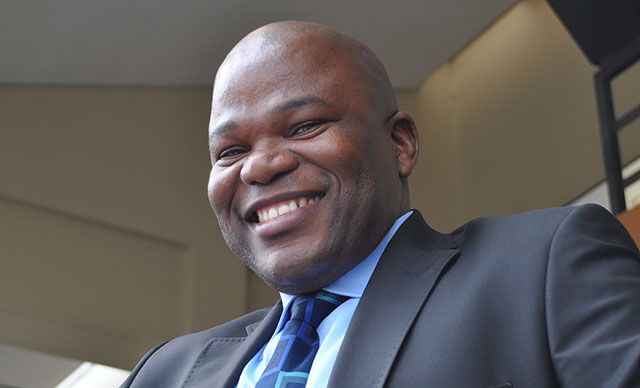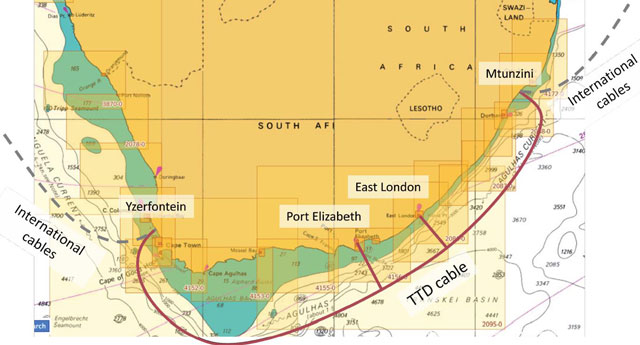
Musa Phungula, the man behind a new subsea cable that will link to similar systems landing at Mtunzini in KwaZulu-Natal and Yzerfontein north of Cape Town, plans to build two huge, 6000sq m data centres to house servers for international content companies and local telecommunications operators.
The new cable system, which could cost as much as US$100m, will extend around South Africa’s coastline between Mtunzini and Yzerfontein and will have landing stations at East London and Port Elizabeth. From the two Eastern Cape cities, the cable will connect to terrestrial fibre infrastructure from companies such as Telkom, Broadband Infraco, FibreCo and Dark Fibre Africa.
Consisting of either two or four fibre pairs and using the latest 100Gbit/s wavelength technology, the system, which is called the TTD cable after the holding company Techteledata, will have a design capacity of up to 16Tbit/s, according to Phungula.
An engineer by profession, Phungula has worked for Transtel, MTN, Cisco, Vodacom and Seacom, among others. He spoke to TechCentral in a one-on-one interview on Tuesday.
The plan to build the TTD cable appears set to ignite a race between Phungula and eFive Telecoms, the South African company behind the South Atlantic Express (SAEx) cable, which will also extend along the same route along the country’s coastline, but which will also run across the Atlantic Ocean to Fortaleza in Brazil. The Brics cable, a much longer system that will extend from Russia in the east, around South Africa and through South America to the US, will also cover some of the same ground.
Phungula believes there is potentially an opportunity for Techteledata, eFive and the consortium behind the Brics cable to work together. “This project is going to reduce the capital needs of projects like the Brics cable and SAEx,” he says. “They can reduce their investments, plus they can buy what they need when they need it on the TTD cable.”

Because the scale of the TTD cable project is much smaller than either SAEx or the Brics cable, Phungula believes that Techteledata will be able to fast-track its launch. Though he has set a date of September 2015 for the launch of commercial services, he says it could happen much quicker than that if the necessary permitting can be speeded up, which is possible given that only the South African government needs to be involved, unlike with the transnational systems.
So far, the Industrial Development Corp has expressed interest in helping fund the project, and Phungula is talking to other potential financiers and technical partners, though he can’t reveal their names as he has signed nondisclosure agreements with them.
Techteledata has contracted France’s Axiom to conduct a technical feasibility study, which will begin in March.
Phungula says the planned data centres, one in Mtunzini and the other in Yzerfontein, will be built with the idea of attracting overseas content companies to serve African consumers. Despite huge investments by South African telecommunications operators and by independent data-centre operator Teraco Data Environments in recent years, Phungula believes there will be sufficient demand to justify the construction of the two facilities.
“The data centres will be there to increase the traffic on the cables along African shores because they are underutilised at the moment. We are already engaging big content providers to book space. If we have three big anchor tenants, then that will be enough to [finance] the data centres.” — (c) 2013 NewsCentral Media




